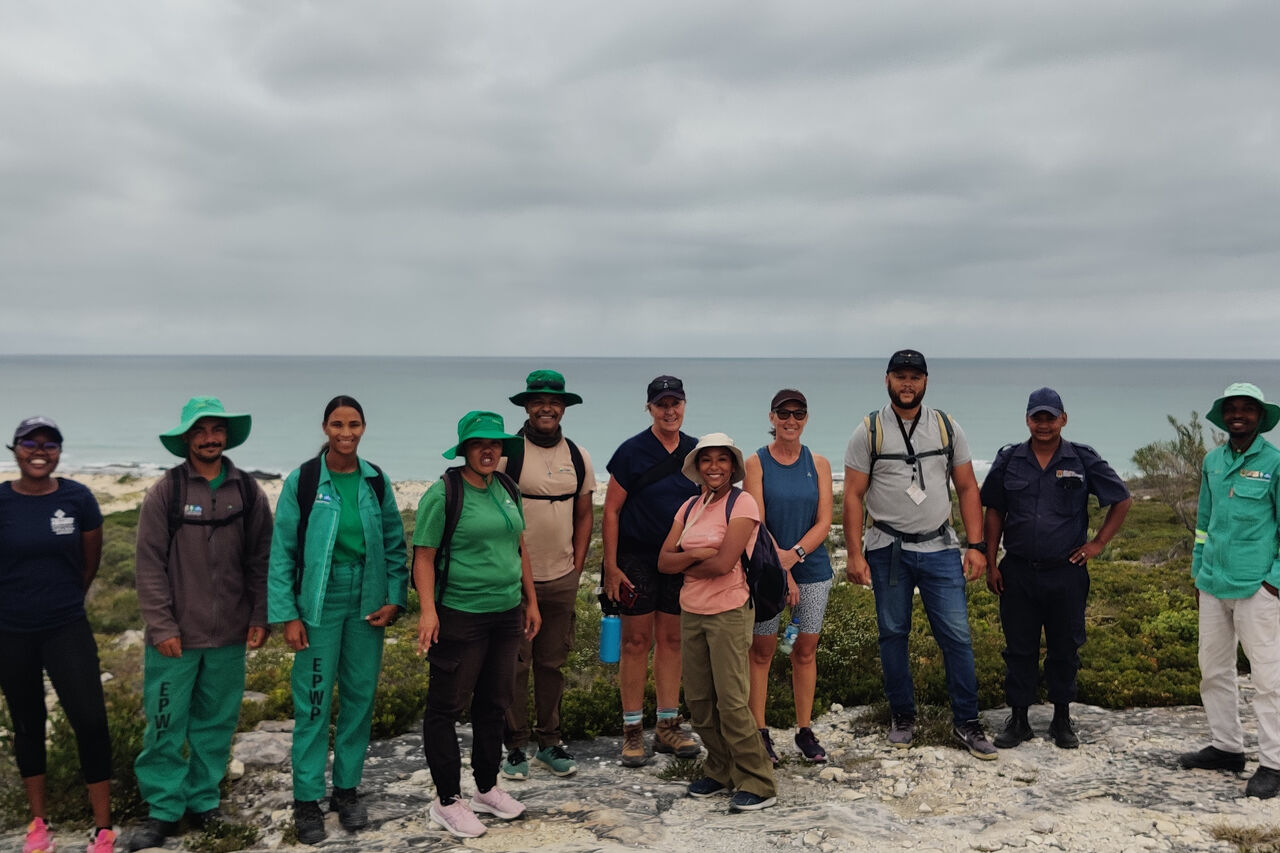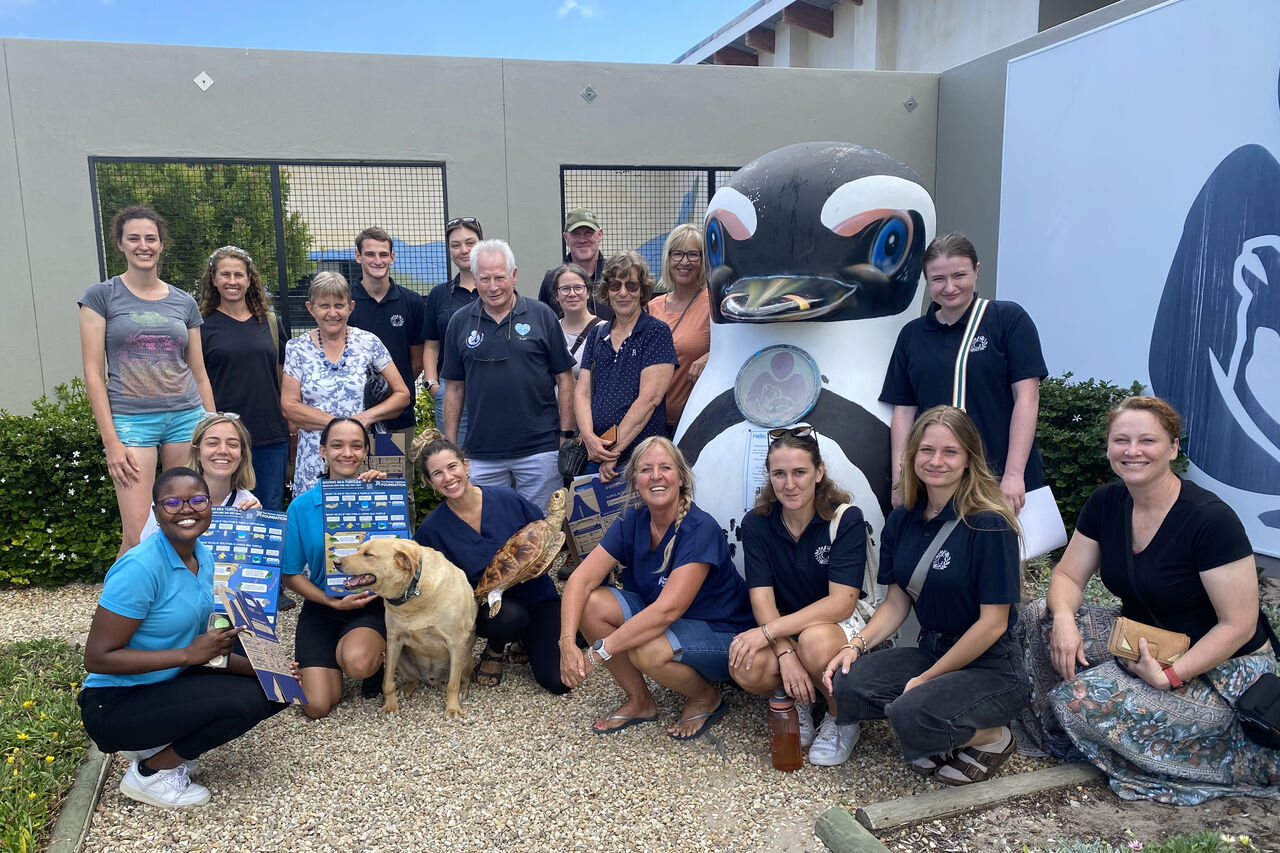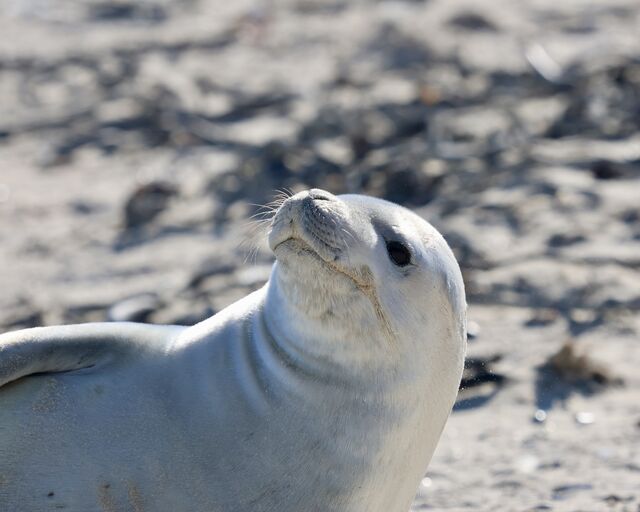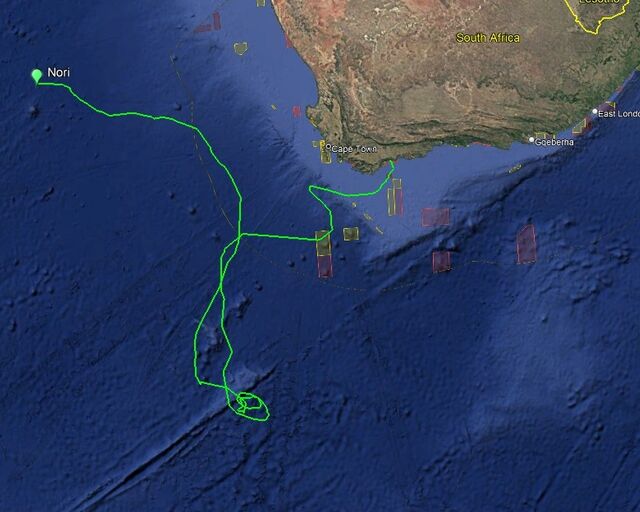Our Turtle Conservation Centre’s 7th annual Turtle Road Trip was an absolute success
As our Two Oceans Aquarium family and turtle community may know, turtle stranding season is coming up. This is an extremely busy time for our Two Oceans Aquarium Foundation’s Turtle Conservation Centre – the team has been known to receive up to 250 turtle hatchlings, all in need of care and rehabilitation before being released.
In anticipation of this eventful season, the Turtle Conservation Centre recruits several staff members to travel the Western Cape coastline, raising awareness and conducting rescue training about turtle stranding. This year, eight intrepid staff members journeyed along the Garden Route and the Overberg from 11 to 19 February.
Let’s learn more about the Turtle Road Trip 2024…
Why do we have a Turtle Road Trip?
Every year, the Turtle Road Trip takes place before stranding season, which predictably begins around late February and continues until July/August. The stranding season follows turtle nesting and hatching season – for loggerhead and leatherback turtles, this takes place annually along the northern KwaZulu Natal coastline between October and January. After hatching, thousands of turtle hatchlings venture into the warm, fast Agulhas Current. As the current slows and turns, many hatchlings are spat into the colder waters near the Benguela Current. These hatchlings become dehydrated, shocked, and cold, marking the beginning of the stranding season as our Turtle Rescue Network sees hundreds of them washing ashore on our beaches.
Thus, at its core, the Turtle Road Trip focuses on getting ahead of the stranding season. The team achieves this by travelling along the Western Cape coastline, where they forge links with new members of the Turtle Rescue Network, strengthen existing connections, and raise awareness about stranding season with the public.
This year, the Road Trip staff members split into two teams of four – one covering the Garden Route and the other, Overberg. At the end of the week, the two teams united to consolidate their findings, conduct the last workshop, and report on the trip.
What did the Road Trip team achieve?
Our Road Trip team followed a programme of public presentations, rescue workshops with Network Points, a few school visits, signage installation, rescue box drop-offs, and much more! Over a week, the teams reached 703 people (including members of the public, local conservancy, and environmental organisations) in the Garden Route and the Overberg. This included 12 public presentations, six workshops, 15 check-ins, two schools and two beach walks. Six Turtle signs were strategically handed out to be erected on key stranding beaches.
The team connected with members of our Turtle Rescue Network (which extends from Lambert’s Bay to Gqeberha) but also forged connections with new faces. Both in the Garden Route and the Overberg, our teams were welcomed with open arms and much enthusiasm.
During the workshops, our teams met with key organisations in the Turtle Rescue Network that are permitted to rescue turtles. The workshops were helpful for our team to review and refresh best practices and first-response care. The public presentations focused on the “turtle story” of how and why stranding occurs, what the public can do to help, and most importantly, what number to call when they find a turtle on the beach (Hint: It’s 083 300 1663).
Both teams got the chance to investigate stretches of coast previously unexplored by our turtle team. Our Garden Route team toured the coastline in Nautilus and Springer Bay with the reserve managers of each bay, while the Overberg team walked an impressive 11km on the beach from Arniston to De Mond, joined by Cape Nature rangers and locals. Both experiences were instrumental in forming our understanding of the coastline on which our turtle patients were stranded. Observing the geography of the coast, as well as the closest “exit”/rescue point was very helpful in ensuring that we can coordinate turtle rescues as smoothly and efficiently as possible.

Turtle-y terrific questions…
Here are just a few of the fascinating and insightful questions posed to the Road Trip team:
- Is climate change affecting sex ratios? Yes! Turtle hatchlings’ sex is determined by the temperature of the sand in which their eggs are laid. If the sand is too hot, we get “hot chicks” and with colder sand, “cool dudes”. This means that, in recent years, we have had an imbalance with too many females and not enough males to continue the species.
- What’s an acoustic tag? Acoustic tags transmit high-frequency noises, or sound signals, that are picked up by nearby receivers. Acoustic tagging methods work best with coastal animals, as the receivers are placed along the Western Cape coastline.
- How does a turtle’s diet change in warm versus cold water? Cold water is good for foraging, with an abundance of nutrients from the upwelling of cold ocean currents. Warm water is more likely where stronger currents are pushing the turtles along, so they will be more opportunistic in their feeding patterns.
- How do the barnacles and epibionts affect tracking? Biofouling is a huge issue with tracking. It is natural for turtles to pick up “travellers” in the ocean, but these can often cause issues with finding signals from satellites or being picked up by receivers.
And our favourite:
- How high can turtles jump out of the ocean? Turtles don’t ever jump above the surface…

It takes a village…
The overarching theme of the road trip was that it takes a village or an interconnected community to rescue turtles successfully. While our Turtle Conservation Centre hosts world-class rehabilitation facilities, we cannot patrol every stretch of coastline all the time. In reality, stranded turtles are found by beachgoing people on family beach outings, fishing trips, or morning walks. Without the support of our Turtle Rescue Network, we wouldn’t have turtles to rehabilitate!
The enthusiasm and interest of each group that our teams presented to during the Road Trip exemplified this lesson. It takes a collective of turtle-minded, caring people working together to rescue and rehabilitate turtles before returning them to their ocean home. Thank you to each member of our community!
How can you help the Turtle Conservation Centre?
If you missed out on the Turtle Road Trip, don’t worry! There are plenty ways that you can help our turtles this stranding season and in the future.
The most important one for now is to keep an eye out on the beaches for stranded turtles! Stranding season takes place from late February until July. We need all eyes peeled – the tiny loggerhead turtle hatchlings are often tough to spot amongst rocks, barnacles, and kelp on the beach. Remember, if you find a turtle on the beach, DON’T PUT IT BACK IN THE WATER and phone our Rescue Hotline immediately on 083 300 1663.
Our Turtle Conservation Centre couldn’t do what it does without the amazing support of our Turtle Rescue Network! We are so grateful for each of the organisations, groups, and individuals who have helped us, whether by rescuing a turtle, combing the beaches, spreading the word, or countless other ways!
Related News
Sign up to our Newsletter
Receive monthly news, online courses and conservation programmes.

